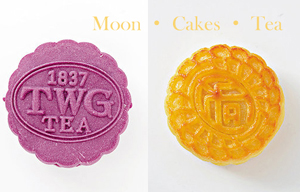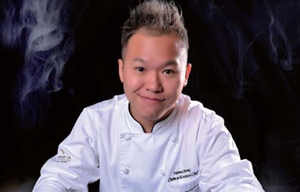High-end tea sales slump in Guangdong
Updated: 2013-09-18 09:12
By Qiu Quanlin in Guangzhou (China Daily)
|
|||||||||||
Sales of high-end tea in Guangdong province before Mid-Autumn Festival have declined sharply due to government policies to limit luxury spending with public funds.
"High-end tea, along with mooncakes, is usually used as gifts during some big Chinese festivals. But this year, sales of tea have been greatly affected," said Zhang Liming, secretary-general of the Guangdong Tea Procession Association.
An association survey showed that sales of high-end tea dropped nearly 50 percent year-on-year before Mid-Autumn Festival, which falls on Thursday.
The survey targeted about 1,000 tea shops in downtown Fangcun and Haizhu districts, the tea trading hubs in Guangzhou, the capital of Guangdong province.
"The drop was mainly due to the government's policy to limit luxury spending, which has also posed challenges to other retail markets such as high-end liquor," Zhang said.
Zhao Xilai, a trader at Nanfang Tea Market in Fangcun district, also said that business has been tough this year.
"Sales have dropped almost 40 percent since September, which is usually a golden time for the high-end tea market," Zhao said.
Tea sales during Mid-Autumn Festival last year accounted for more than 60 percent of September's total business revenue.
"Many government authorities and companies used to buy high-end tea as gifts. But this year, fewer came to our shop," Zhao said.
Along with the decline of high-end tea sales, sales of some related products, including tea sets and gift cases, have also decreased, Zhao said.
To offset the business downturn, Zhao began to sell some lower-end products, which are usually tailored for individual use.
While sales of high-end tea dropped, sales of lower-end products in most tea markets in Guangzhou remained steady this year.
"We don't sell expensive tea. Our business remained the same as usual," said Chen Wu, a trader at Haizhu Ruinan Tea Market.
Guangdong, one of the country's top provinces in terms of tea consumption, is also home to about 40,000 hectares of tea plantations with steady output growth, said sources with the Guangdong Tea Procession Association.
"People in Guangdong are really keen on drinking tea. So the market for ordinary people is our target, which helps maintain a sustainable growth for us," Chen said.
The big drop in high-end tea sales will not be a big problem for the tea industry as a whole, Chen said.
"Selling high-end tea, which is usually used as gifts, is just part of a short-term strategy for many companies. In the past, sales of such tea underwent a sharp increase during major Chinese festivals," Chen said.
"But from a long-term perspective, the tea industry will not be affected since there are a growing number of individuals who are willing to spend on tea," Chen said.
Related Stories
Special: Moon · Cakes · Tea 2013-09-16 17:05
Moon · Cakes · Tea 2013-09-16 15:21
Black tea from Yunnan and Tibetan buddhism 2013-08-30 09:50
Sweet tea: refresher of leisure time in Lhasa 2013-08-22 13:59
Drought, heatwaves affect tea plantations in E China 2013-08-19 09:42
Today's Top News
Don't meddle in HK's affairs, China warns UK
Education elusive for children with disabilities
FDI keeps increasing in August
Health bureau to probe milk powder bribe claim
Fine-particle pollution climbs in Aug
China's space station to open for foreign peers
FTZ pilot area details to be delayed
Number of China's female billionaires on the rise
Hot Topics
Lunar probe , China growth forecasts, Emission rules get tougher, China seen through 'colored lens', International board,
Editor's Picks

|

|

|

|

|

|







